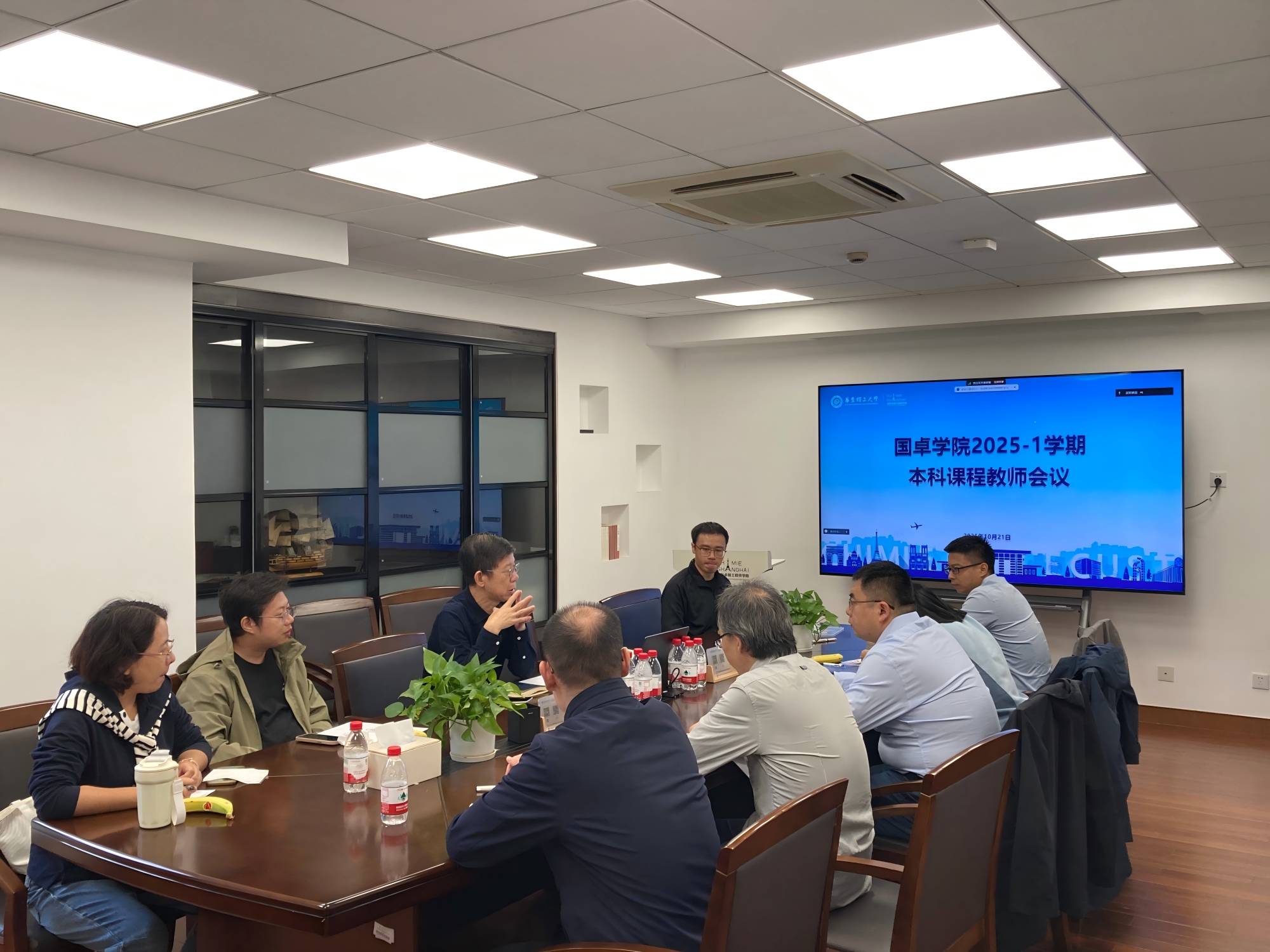On 21 October 2025, the International College of Excellence in Engineering convened a symposium for undergraduate course teaching staff during Semester 251. Chaired by Vice Dean for Teaching Huang Guangtuan, the meeting brought together 12 participants, including faculty representatives from Mathematics, Physics, Chemistry and other disciplines, alongside teaching assistants for foundational courses—via a hybrid online and in-person format.
Vice Dean Huang Guangtuan commenced by outlining the distinctive collaborative educational model established through the College’s partnership with the FGL Alliance. He noted that the School is steadily advancing French-language teaching reforms, having recruited French-speaking physics and chemistry lecturers to progressively transition from English-to-French instruction. Addressing high failure rates in certain courses, the School will implement process-based assessments including focused Q&A sessions on challenging content and multiple-assignment grading with best-mark selection to ensure quality enhancement.
The meeting prioritised four improvement measures : firstly, establishing pre-examination and post-examination tutoring mechanisms for French-taught courses, delivered by Chinese teaching assistants; secondly, strengthening collaborative mechanisms for academic conduct development through a coordinated tracking system involving teaching staff, academic affairs, and student affairs; thirdly, optimising examination scheduling by implementing a reasonable system of ‘one examination every two to three days’; and fourthly, enhancing examination discipline and integrity by reinforcing the sense of responsibility among invigilating staff.
Attending faculty members provided concise reports on recent teaching developments for their respective courses, followed by vigorous discussions on classroom instruction, formative assessment, and academic conduct. This symposium exemplified the International Elite Engineering School’s student-centred pedagogical philosophy. Through systematic optimisation of assessment mechanisms, enhanced teaching process management, and refinement of quality assurance frameworks, the School is actively developing an internationalised model for engineering talent cultivation. This initiative provides robust support for nurturing outstanding professionals equipped with both specialised expertise and cross-cultural competence.



